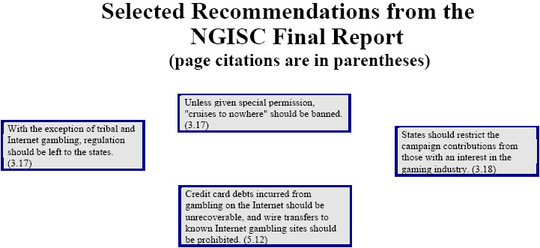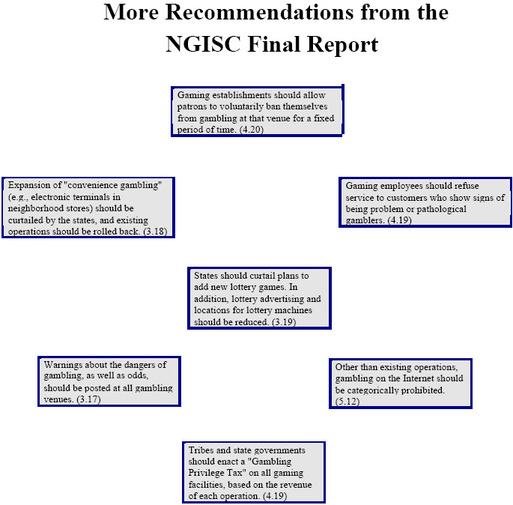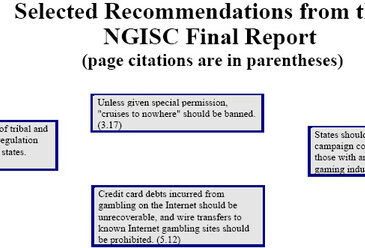Last week’s WAGER examined the prevalence estimates submitted to the National Gambling Impact Study Commission (NGISC) by the National Opinion Research Center (NORC). But the prevalence research occupies only a few out of the final report’s nearly 300 pages. Primarily, the NGISC produced a document of policy recommendations that may inform future legislative and regulatory activity.
Following the highly anticipated release of the final report, pundits from the media and elsewhere attempted to take stock and decide who would ultimately benefit most: the gaming industry or anti-gambling activists. Both sides claimed victory, but such discourse reduces the significance of the report to a tug-of-war between two opponents. There are more than two sides to the issues arising from gambling, and the multiple dimensions of each issue make "picking a winner" a futile effort. For example, one might claim that the report refuted the longtime position of the gaming industry that the introduction of gambling is beneficial to the economy. In fact, according to the report, such a claim is true- but only for certain types of gambling. While the report fails to find an overall economic benefit from lottery and convenience gambling, it does submit that the growth of casino gambling can be an important factor in stimulating economic growth. Who wins and who loses as a result of these findings? It is difficult to assign victory and defeat, and attempts to do so should be met with scrutiny.
Furthermore, many recommendations are made in response to perceived problems. Therefore, the net benefits of implementing these suggestions must be scientifically evaluated to determine their usefulness. For example, it is entirely possible that removing ATMs from casinos might make matters worse because of an effect that no one has considered.
Below is a selection of these recommendations, abstracted directly from the text of the final report. Of course, these are only recommendations; that is, none is legally binding until Congress or other appropriate bodies decide to enact them into law.


Sources: 1 National Gambling Impact Study Commission. (1999). National gambling impact study commission final report. Washington, DC: Author.
The WAGER is funded, in part, by the National Center for Responsible Gaming, the Massachusetts Department of Public Health, the Andrews Foundation, the Addiction Technology Transfer Center of New England, the Substance Abuse and Mental Health Administration Services, and the Center for Substance Abuse Treatment.




